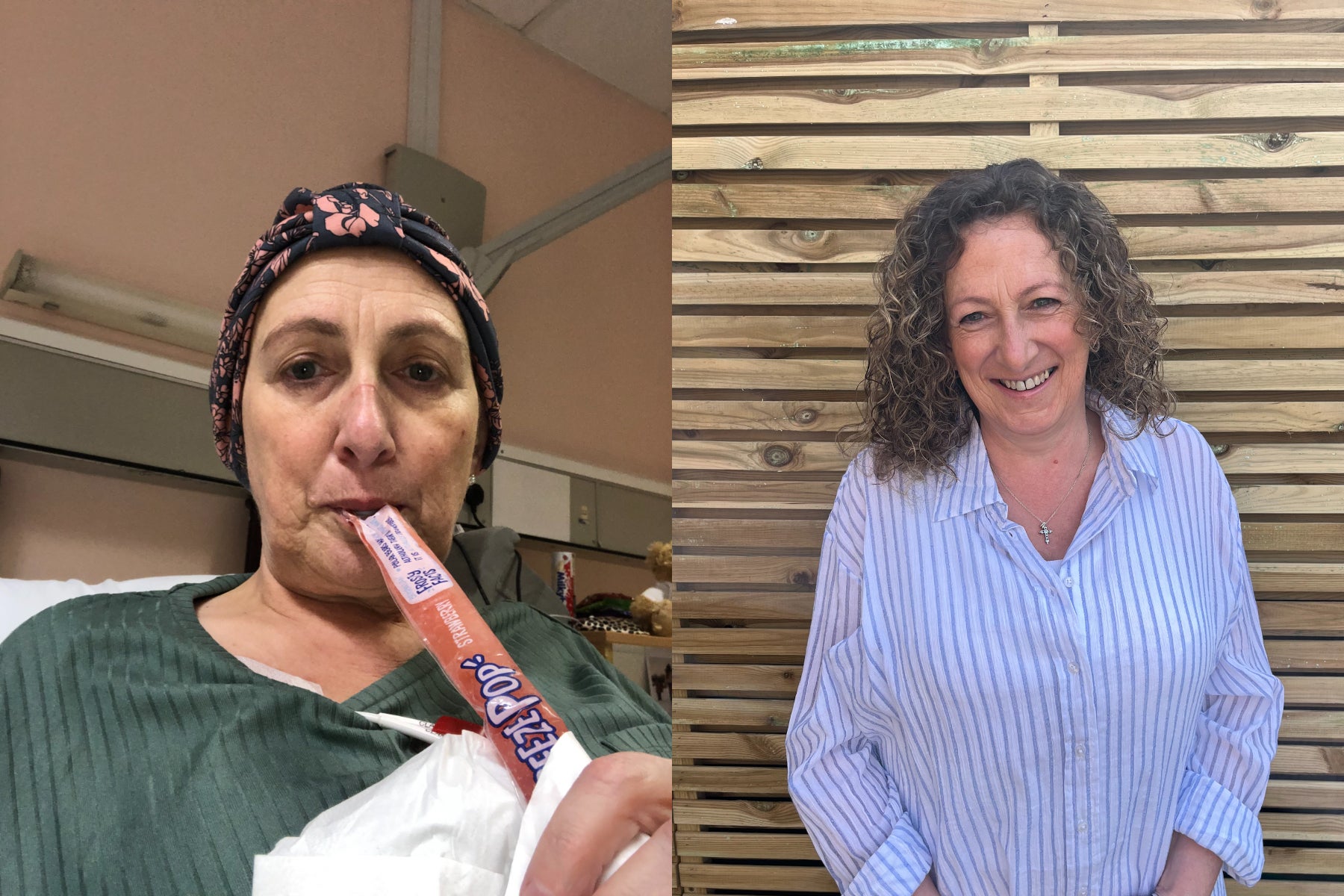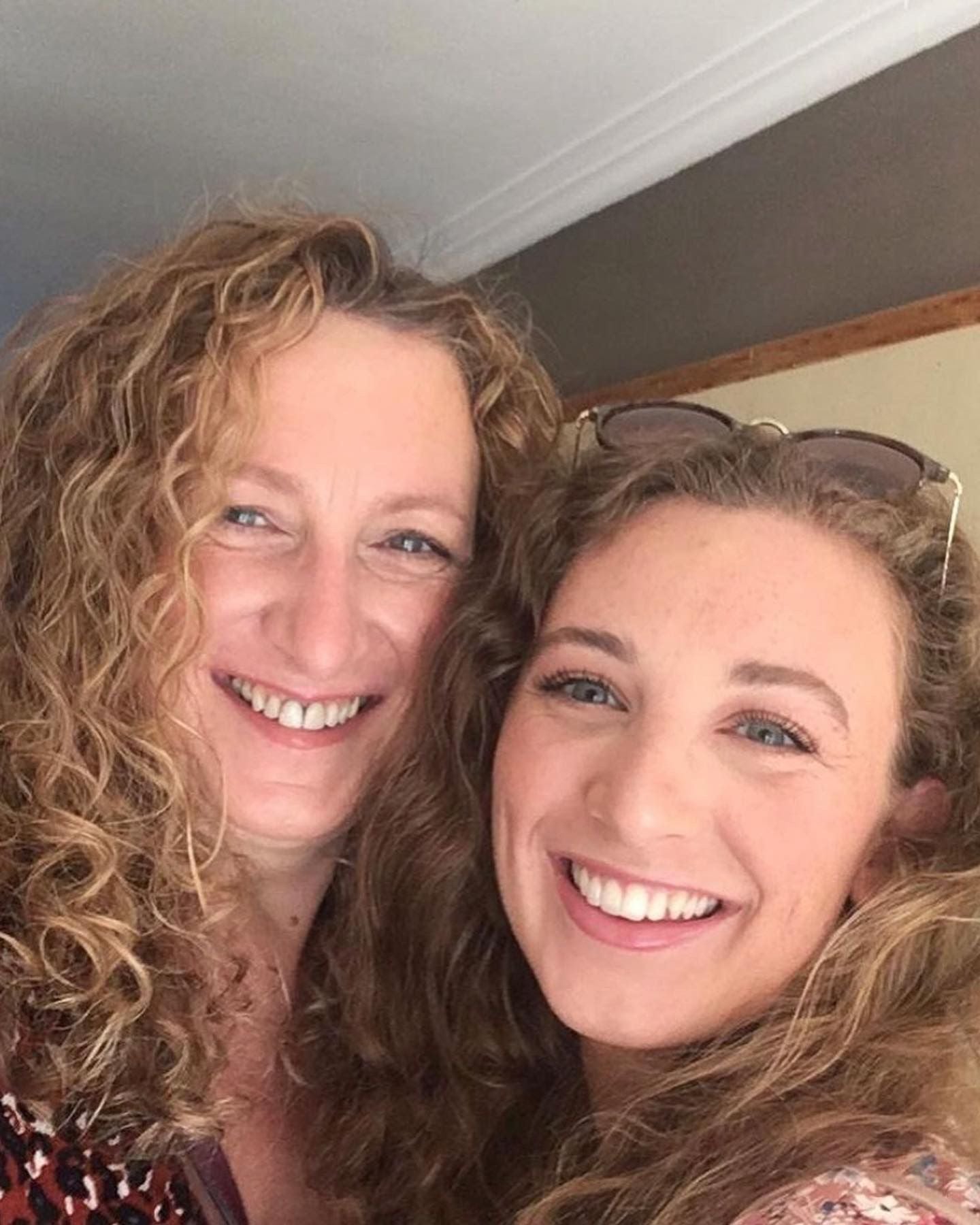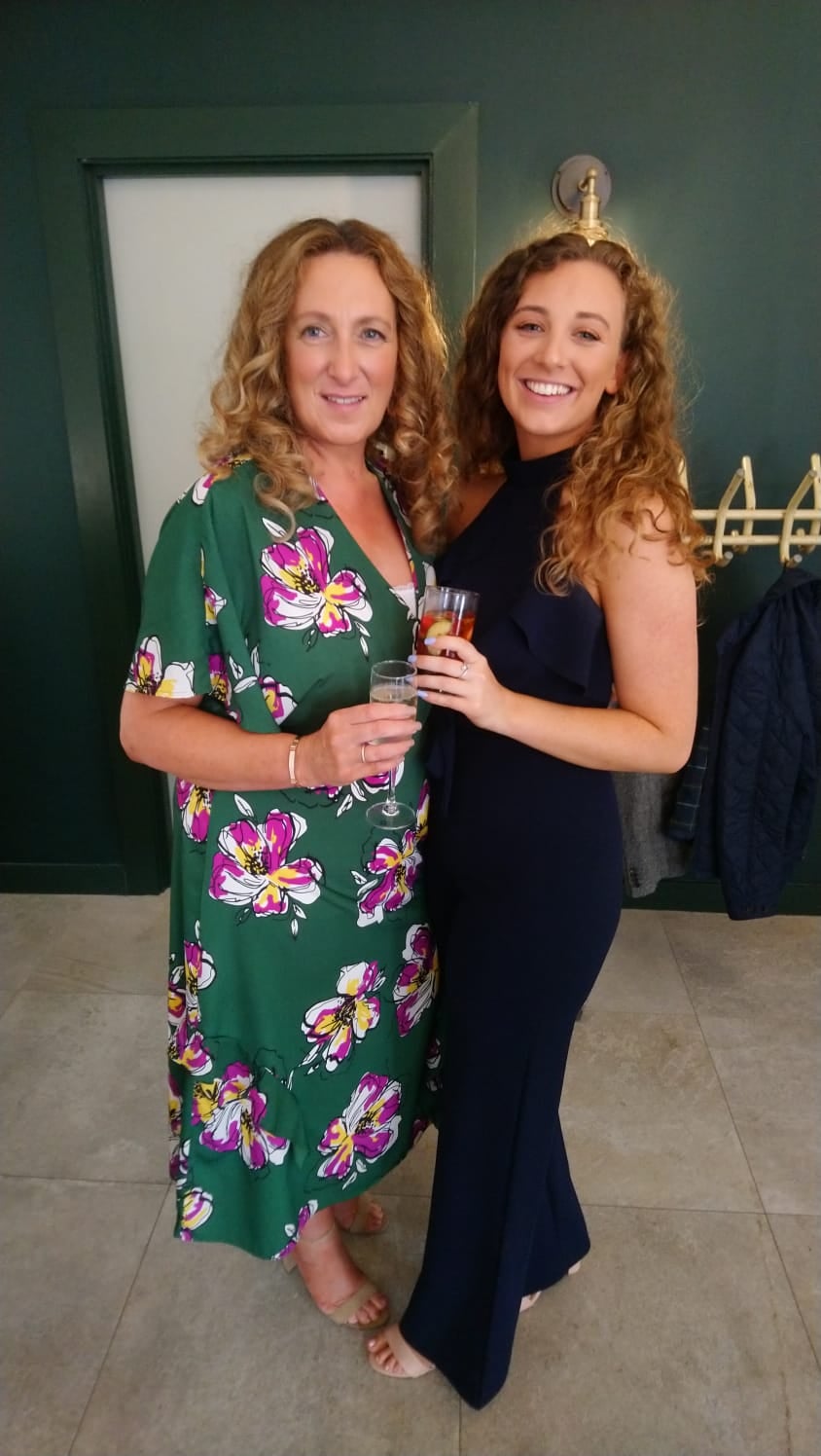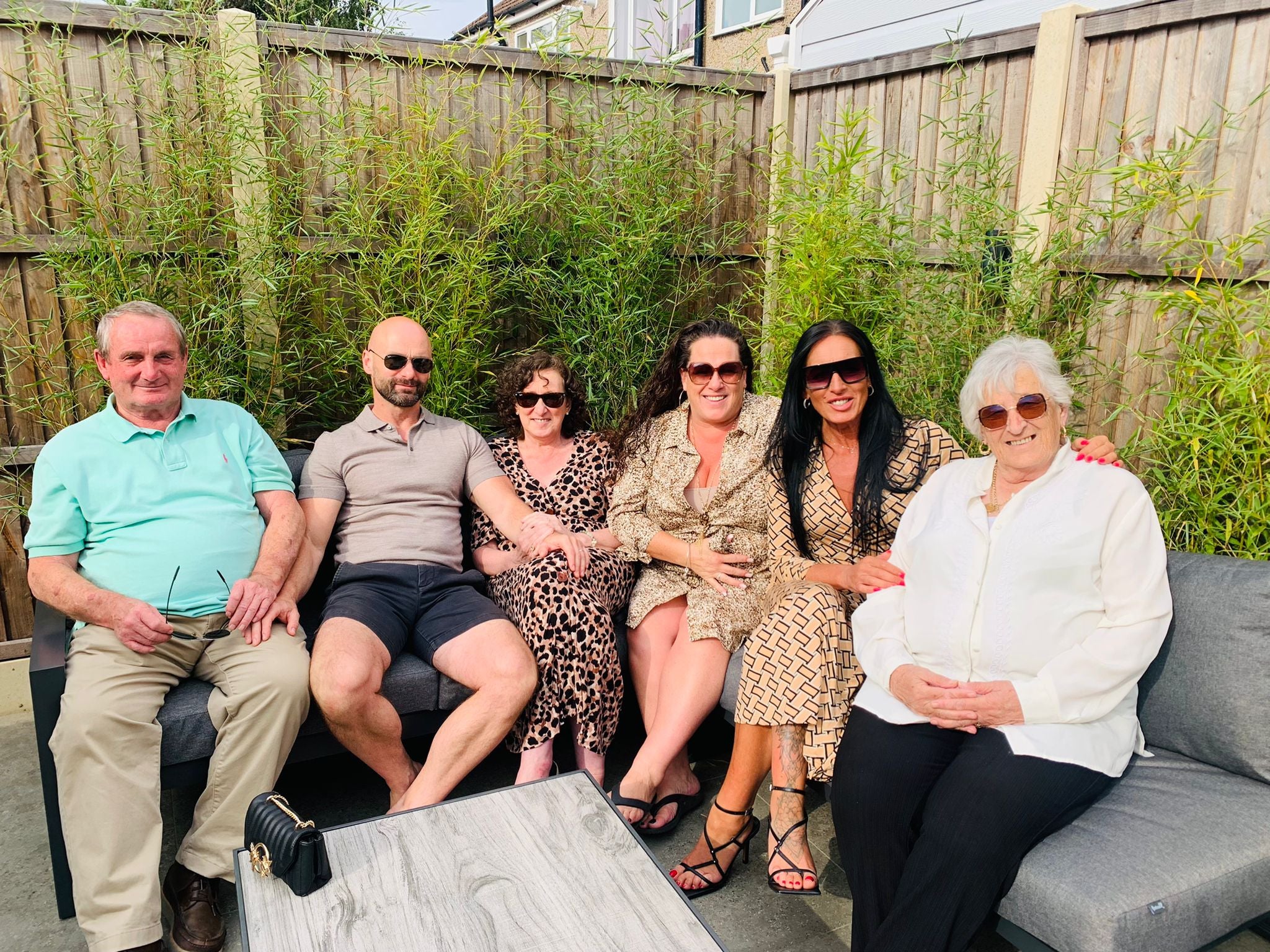‘Incurable cancer left me three inches shorter – I want everyone to know the symptoms’
‘Doctors asked if I’d been in a car accident or if I’d fallen down the stairs or if I’d been attacked as I had multiple fractures’

Your support helps us to tell the story
From reproductive rights to climate change to Big Tech, The Independent is on the ground when the story is developing. Whether it's investigating the financials of Elon Musk's pro-Trump PAC or producing our latest documentary, 'The A Word', which shines a light on the American women fighting for reproductive rights, we know how important it is to parse out the facts from the messaging.
At such a critical moment in US history, we need reporters on the ground. Your donation allows us to keep sending journalists to speak to both sides of the story.
The Independent is trusted by Americans across the entire political spectrum. And unlike many other quality news outlets, we choose not to lock Americans out of our reporting and analysis with paywalls. We believe quality journalism should be available to everyone, paid for by those who can afford it.
Your support makes all the difference.A mother had fractures in her back so severe that doctors thought she had been in a car accident, but instead resulted in an incurable blood cancer diagnosis.
Jane Hogan, 58, who lives in Cheshunt, Hertfordshire, was diagnosed with myeloma – incurable blood cancer – in March 2020 after months of “horrendous” pain, describing the feeling as a “firework going off” across her lower back.
By the time she was diagnosed, around seven months after her symptoms first started, she said her back was fractured in 12 places and her breastbone was broken, prompting doctors to ask whether she had been in a car accident.
“They asked if I’d been in a car accident or if I’d fallen down the stairs or if I’d been attacked as I had multiple fractures,” Jane told PA Real Life.
She has lost three inches in height as a result, meaning she is now 5ft 3in tall, and said her back looks like a “question mark” from the side.

Jane started chemotherapy soon after her diagnosis and had a stem cell transplant in December 2020 – but by the autumn of 2021, the cancer had returned.
She is currently receiving maintenance chemotherapy and wants to raise more awareness of the symptoms of myeloma to help others advocate for their health and get an early diagnosis.
“Hopefully, I’m going to be the one that gets to 10 years (post-diagnosis). I’ve still got too much to do, I can’t go anywhere yet,” Jane said.
“My daughter’s about to buy her first property, I need to get her in and married. I’ve got lots to do still, so it won’t beat me.”
On her advice to others, she added: “You’ve just got to be grateful every day when you get up… I try not to sweat the small things anymore.
“Just get up every day and breathe. Get in the garden if you can, go for a walk, go for a drive, go and have a burger if that’s what you fancy.
“The NHS is keeping me alive, so for that, I’ll be eternally grateful.”

According to the charity Myeloma UK, around 5,900 people are diagnosed with myeloma in the UK each year.
Despite being the third most common type of blood cancer, the charity said, myeloma is frequently missed, as its symptoms – including back pain, broken bones, fatigue, and recurring infection – are often linked to general ageing or minor conditions.
For Jane, a former office manager, she knew something was not right when she started experiencing severe back pain in 2019.
She saw her GP and was treated for muscle ache, but the pain increased to the point where she could not “sit properly” or “bend”.
“When we were cooking dinner at Christmas, I was doing the splits trying to get food out of the oven because I could not bend,” Jane said.
She was later sent for an X-ray, which showed some compression on her spine, which doctors described as “wedging”.
She was prescribed morphine, but her back pain was “off the Richter scale”, leaving her unable to walk and get into her car without assistance.
“I am tough. I’m a single mum, I’ve raised two children, I had a full-time job, a good social life – it knocked me for six,” she said.
“I took time off work, which I never do, and I had to sit on a garden chair. I couldn’t even sit on my sofa, it was awful.”
In February 2020, Jane’s daughter Tillie, 26, had to call an ambulance as Jane “could not get off the sofa” and she was rushed to hospital and had an MRI.
Unable to pinpoint the cause, however, Jane said doctors sent her home in a back brace, which she described as a “torture contraption”, along with some painkillers.

Jane had to move her bed to the lounge because she could not walk up the stairs – and just over a week later, she was taken to hospital by ambulance again.
“I woke up that day and I thought, ‘I’m going to die today’,” she explained.
In A&E, a junior doctor looked over Jane’s previous test results and immediately suspected myeloma, leading to further tests and examinations.
Jane was then formally diagnosed in March 2020 – around seven months after her symptoms first started.
“My first thought was, I’ve got to tell my kids. I’ve got to tell them that I’ve got cancer,” Jane said.
“Then it was, ‘Am I going to die?’
“The doctors just said, ‘We’ll get your treatment plan sorted. It’s not curable, but it is very treatable’.”
Jane started chemotherapy immediately, but due to the first Covid-19 lockdown, she had to continue treatment at home with tablets and blood thinners.
She described the subsequent months as “hell on Earth” and then had a stem cell transplant on December 24 2020.
Jane said she thought she would be “up and dancing around the living room in three weeks”, but instead, she felt like a “balloon that had deflated”.
In July 2021, Jane started to feel “more like (herself)”, but by October 2021, the cancer had returned and she needed to start chemotherapy again.
Jane’s family were “brilliant” in supporting her and she said her friends “became a pride of lionesses”.
She feels she “wouldn’t be here without them” and her two children – Tillie, 26, and Charlie, 32.
“You can’t get through cancer unless you’ve got that (support network),” Jane said.
“To me, cancer, you’ve got to beat it mentally and I am very stubborn, and I say to everybody, ‘It won’t kill me because I’m not going to let it’.”
Although her back pain will “never go away” and she has had to adjust to a new normal, Jane is currently responding well to her maintenance chemotherapy and is having physiotherapy – and she is determined to “make a life” for herself.
As part of Myeloma Awareness Week, Jane wants to encourage others to “be (their) own advocate” when it comes to their health, to “stand up for (themselves)”, and to get any unusual symptoms checked as early as possible.
Jane said: “It never really goes. I can’t get in a bath anymore, I can’t go out on my own, I can’t walk too far, I do my housework in chunks.
“But I say, ‘If I wake up and I’m in pain, it means I’m still here’.”
She added: “Until I got it, I didn’t have a clue about myeloma… there were so many red flags that I didn’t pick up on.
“Don’t keep leaving things. If there’s a problem, go and see your doctor.”
For more information, visit Myeloma UK’s website – myeloma.org.uk – or call its Infoline on 0800 980 3332.
Join our commenting forum
Join thought-provoking conversations, follow other Independent readers and see their replies
Comments